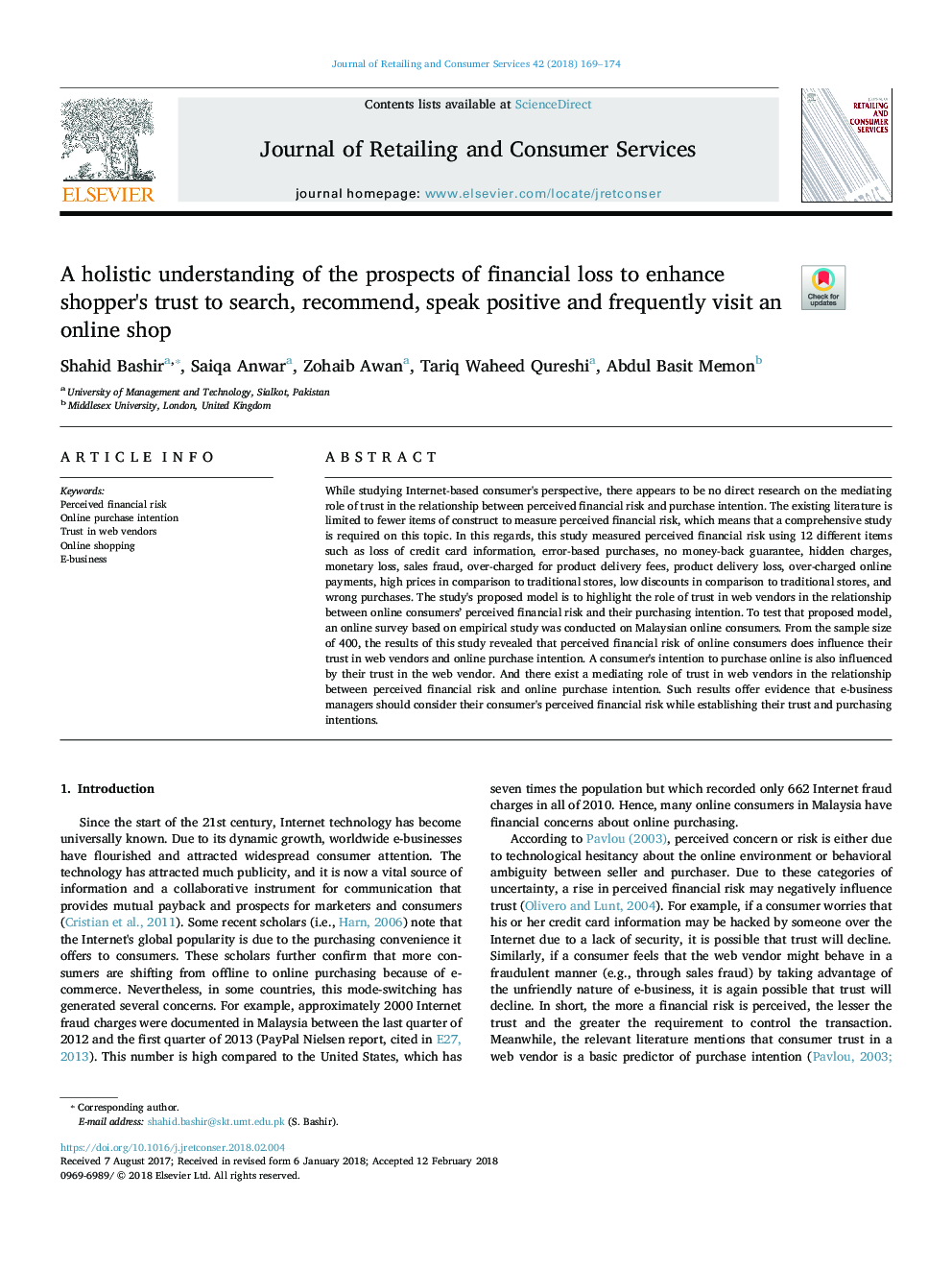| Article ID | Journal | Published Year | Pages | File Type |
|---|---|---|---|---|
| 7433567 | Journal of Retailing and Consumer Services | 2018 | 6 Pages |
Abstract
While studying Internet-based consumer's perspective, there appears to be no direct research on the mediating role of trust in the relationship between perceived financial risk and purchase intention. The existing literature is limited to fewer items of construct to measure perceived financial risk, which means that a comprehensive study is required on this topic. In this regards, this study measured perceived financial risk using 12 different items such as loss of credit card information, error-based purchases, no money-back guarantee, hidden charges, monetary loss, sales fraud, over-charged for product delivery fees, product delivery loss, over-charged online payments, high prices in comparison to traditional stores, low discounts in comparison to traditional stores, and wrong purchases. The study's proposed model is to highlight the role of trust in web vendors in the relationship between online consumers' perceived financial risk and their purchasing intention. To test that proposed model, an online survey based on empirical study was conducted on Malaysian online consumers. From the sample size of 400, the results of this study revealed that perceived financial risk of online consumers does influence their trust in web vendors and online purchase intention. A consumer's intention to purchase online is also influenced by their trust in the web vendor. And there exist a mediating role of trust in web vendors in the relationship between perceived financial risk and online purchase intention. Such results offer evidence that e-business managers should consider their consumer's perceived financial risk while establishing their trust and purchasing intentions.
Related Topics
Social Sciences and Humanities
Business, Management and Accounting
Marketing
Authors
Shahid Bashir, Saiqa Anwar, Zohaib Awan, Tariq Waheed Qureshi, Abdul Basit Memon,
